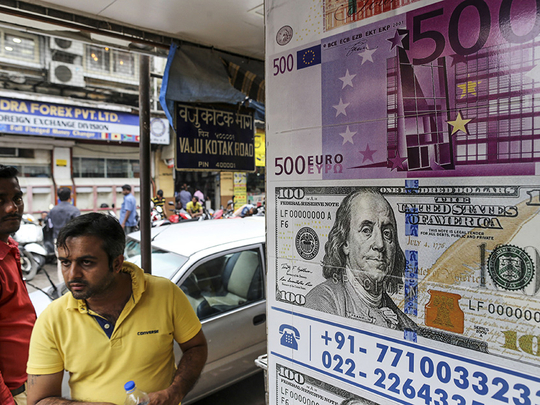
Singapore: If Asia’s short-term money market rates are any guide, the region’s central banks are taking Donald Trump in their stride and won’t need to raise borrowing costs along with the Federal Reserve next year.
An average of one-month rates in eight Asian emerging markets has risen 28 basis points since the November 8 US election as Trump’s pledge to boost spending fuelled expectations for a faster pace of Fed interest-rate increases. That compares with the 126-basis-point surge in 2013 in the three weeks after the US central bank said it would wind down its quantitative-easing program.
For Claudio Piron, Bank of America Merrill Lynch’s co-head of Asian foreign-exchange and rates strategy, it’s evidence that the region’s monetary authorities won’t need to boost borrowing costs to defend their currencies.
“There wasn’t one Asian country we’ve come across where the policymakers said — if the Fed is hiking we need to hike,” said Claudio Piron, Bank of America Merrill Lynch’s co-head of Asian foreign-exchange and rates strategy based in Singapore, who correctly predicted drops in the South Korean won and Taiwan dollar in late 2015. “I would not describe current conditions as dislocation or disruptive.”
The Bank of Korea and Bank Indonesia stayed on hold on December 15, just after the Fed raised its benchmark interest rate and said it saw three increases next year instead of the previous projection for two. The Bank of Thailand left its key rate unchanged on Wednesday, and policymakers at Bangko Sentral ng Pilipinas and Taiwan’s monetary authority are forecast to do the same when they meet on Thursday.
The Philippine monetary authority is the only Asian emerging-market central bank that will lift its policy rate next year, according to Bloomberg surveys.
China, India
China has had the biggest surge in short-term money market rates in developing Asia from November 8 through Wednesday after authorities started tightening in August to slow the build-up of debt and ease downward pressure on the yuan. In India, the one-month interbank rate has dropped as Prime Minister Narendra Modi ‘s move to scrap high-value bills forced people to deposit their cash in banks. The other six markets included in the Bloomberg-compiled average are South Korea, Taiwan, Philippines, Thailand, Malaysia and Indonesia.
“What’s happening in Asia is a whole bunch of idiosyncratic developments,” said Mirza Baig, Singapore-based head of foreign-exchange and rate strategy for Asia at BNP Paribas SA, the largest French bank. “What ties it together is the removal of expectations of further interest-rate cuts.”
It’s a far cry from 2013 when dollar strength and capital outflows forced the Reserve Bank of India to raise benchmark borrowing costs by 100 basis points and Bank Indonesia to increase by 175 basis points to defend the rupiah, said Merrill Lynch’s Piron.
“That’s actually a big difference and that’s why Asian central banks can say — you know what, the Fed is hiking but I don’t think I need to hike,” he said.












